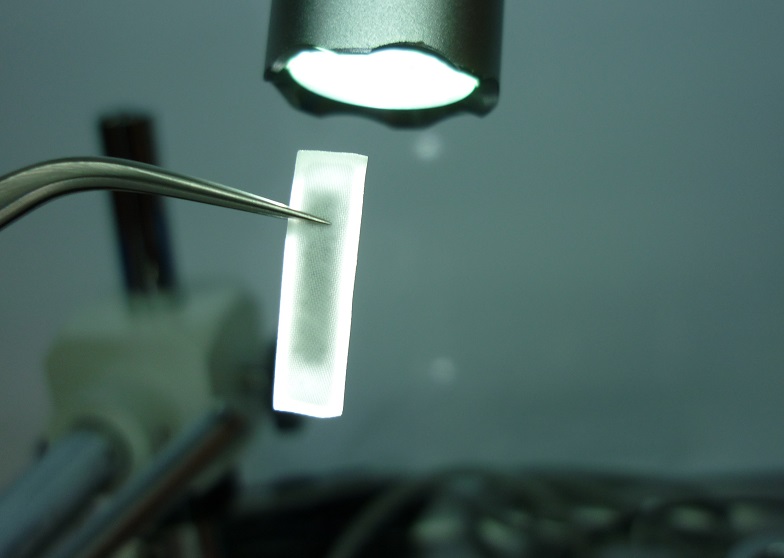NAS and RAID Data Recovery
Data Retriever specialises in RAID data recovery from failed disk arrays of all sizes. We can provide expert assistance with your failed server array, be it comprised of SAS, SCSI or SATA disks. We also have a good familiarity with NAS devices, current and legacy models.
Disk arrays containing mechanical hard drives are susceptible to damage from physical trauma (chassis impacts and vibration) and arguably are at greater risk than other hard drives from physical wear, depending upon the RAID level employed. Regardless, all HDDs from RAID arrays have the same basic requirements for clean lab repair and data recovery.
There are problems with trusting a disk array alone with your data, principally with regards to logical issues, including virus infection, accidental or malicious deletion, data corruption and so on. These concerns apply to other levels of RAID and even to synchronised backups – if the problem hits the array, your only copy of the data is compromised. Other ‘global’ or environmental events can affect any type of array, such as damage from a power surge, fire or flood, as well as theft of the physical hardware itself. Any of these can wipe out your data in a single unfortunate event. We receive multiple disk arrays (RAID) and network-connected drives and arrays (NAS) for data recovery on a regular basis. To help ensure yours isn’t one of them, learn more about the topic in this short article.
Experience and Capabilities
We’re familiar with corporate grade arrays that employ SATA, SAS and SCSI HDDs. We specialise in RAID data recovery from arrays with multiple failed drives. We work with all levels of RAID, including the custom configurations of various embedded NAS manufacturers. unRAID and JBOD is no problem and we can even help with the custom settings that some motherboard-hosted controllers allow.
Types of Failures We Address
Most commonly, we see RAID5 arrays with 2 failed disks. We also see mirrored drives (2x in RAID1) with logical problems and striped arrays (RAID0) with single-disk failures. We’ve performed scores of recoveries from these scenarios and have a solid success rate with these and other less common failure scenarios. All brands of hard drive, all controllers, even software arrays – we can work with them and employ strictly read-only recovery methods.
How To Handle Failures
It is important that the server or NAS device is powered off immediately when problems are detected. Crucially, you should avoid attempting any sort of rebuild or repair even if the controller’s interface recommends doing so – these operations are often designed to restore array functionality but NOT to preserve the data contained from previous/broken arrays! Powering off will also help to preserve the operational state of any deteriorating hard drives, giving us the best chance possible to deliver a faster and more complete result to you.
- Mechanical (clicking, squealing, screeching, otherwise noisy drives)
- Firmware (failing to detect correctly or at all, abnormal behaviour)
- Electrical (failing to spin up, burning smell or even smoke emission)
- Logical (deleted or missing files, broken file systems, malicious attacks)
We recover from all current HDD manufacturers and many older, uncommon makes, including:
- Western Digital (WD) / Hitachi / IBM
- Seagate / Samsung / Maxtor
- Toshiba
- Fujitsu
We’re competent with recovery from many file systems & environments including:
- Windows (3.x, 95/98/ME, 2000/NT, 2003/2008, Vista/7/8, 10) – FAT32; NTFS
- Mac (legacy, 7/8/9, OS X) – HFS/HFS+; APFS
- Linux (Debian, Fedora, Mandriva, Red Hat, SuSE, Ubuntu) – EXT2/3/4
- Unix (AIX, BSD, HP-UX, SCO, Solaris, UnixWare) – EXT; UFS/FFS; ZFS
- DOS – FAT; FAT16
- Netware – NWFS
- OS/2 – FAT12/16; HPFS

Top-Notch Service
We never charge for our evaluation of your failed hard disk drive. As always, we strive to provide you with relevant and clear information in a pressure-free manner, helping you to make an informed decision about how to proceed from that point. We’re available for contact at any point before, during and after your recovery – please call or email any time for friendly and professional assistance and advice, or if you’re ready to send your drive in for a free inspection and quote, you may review our process and prices before making a booking.
